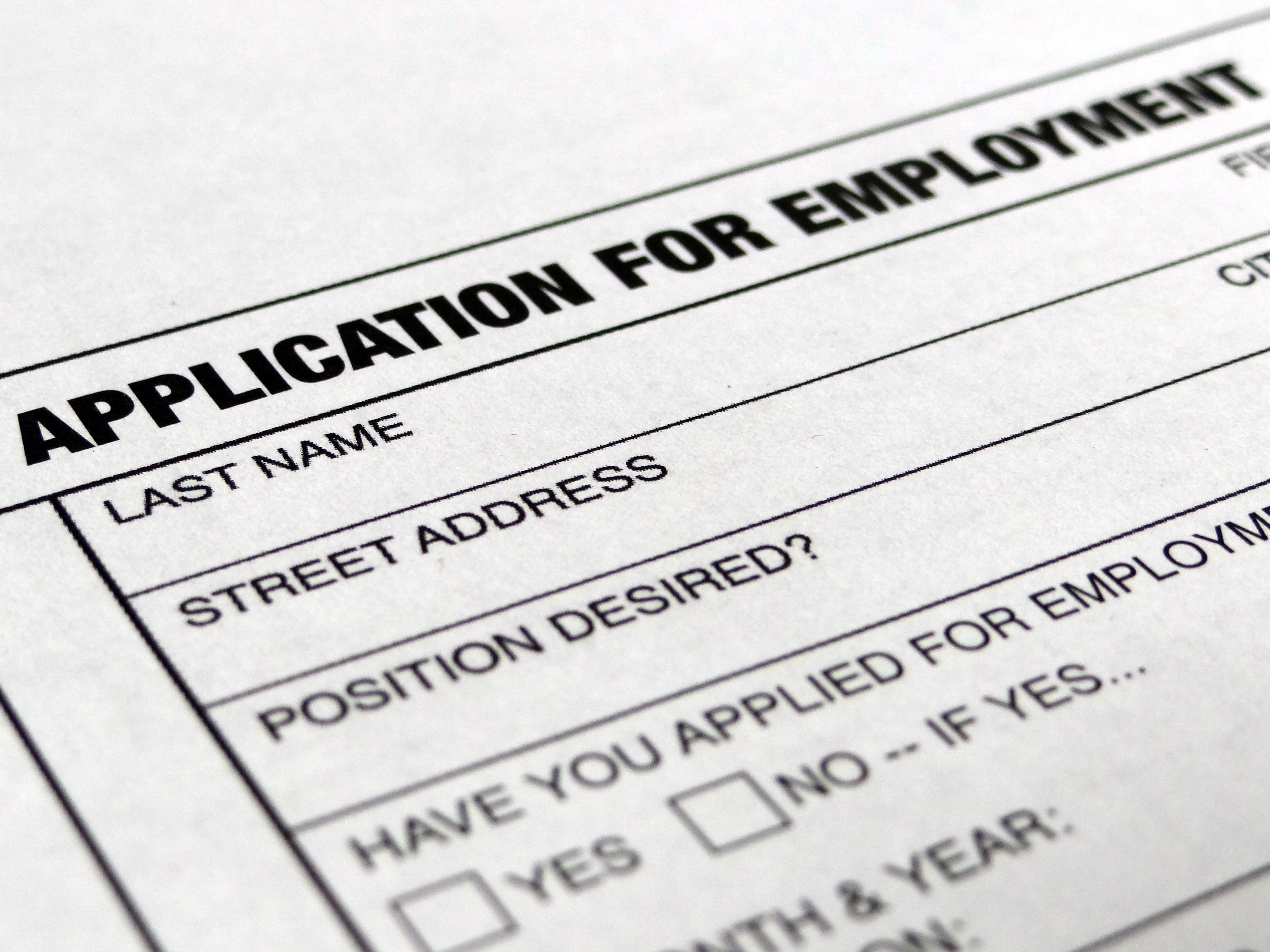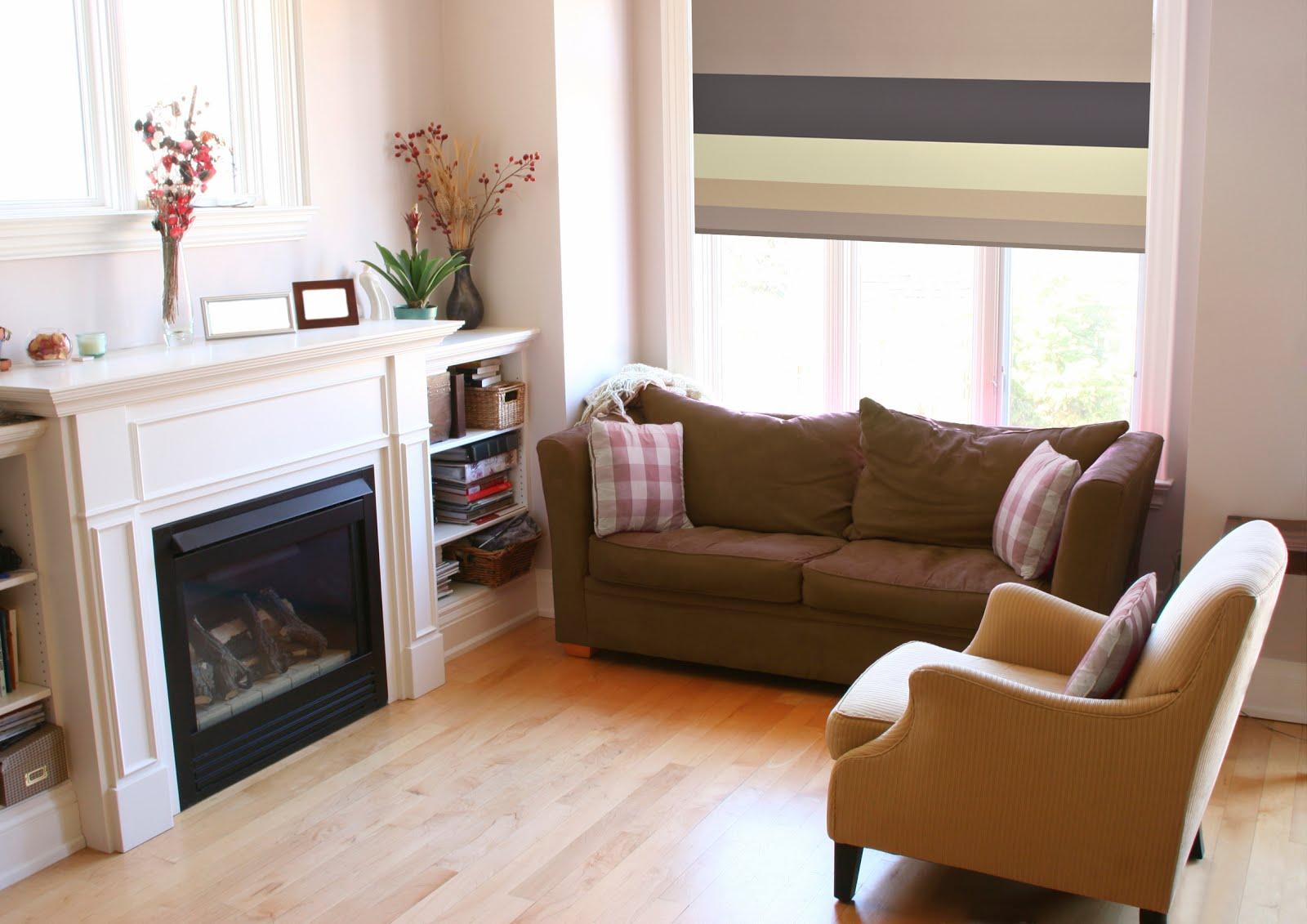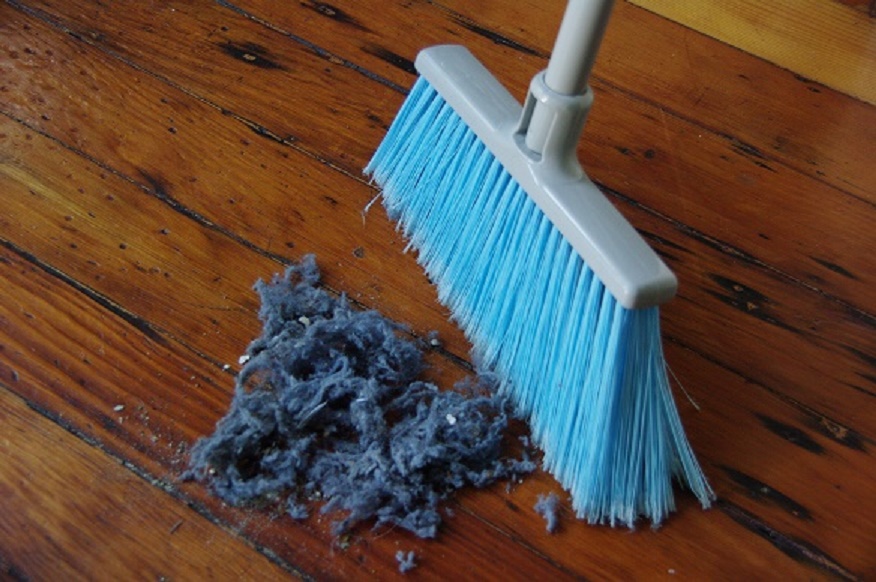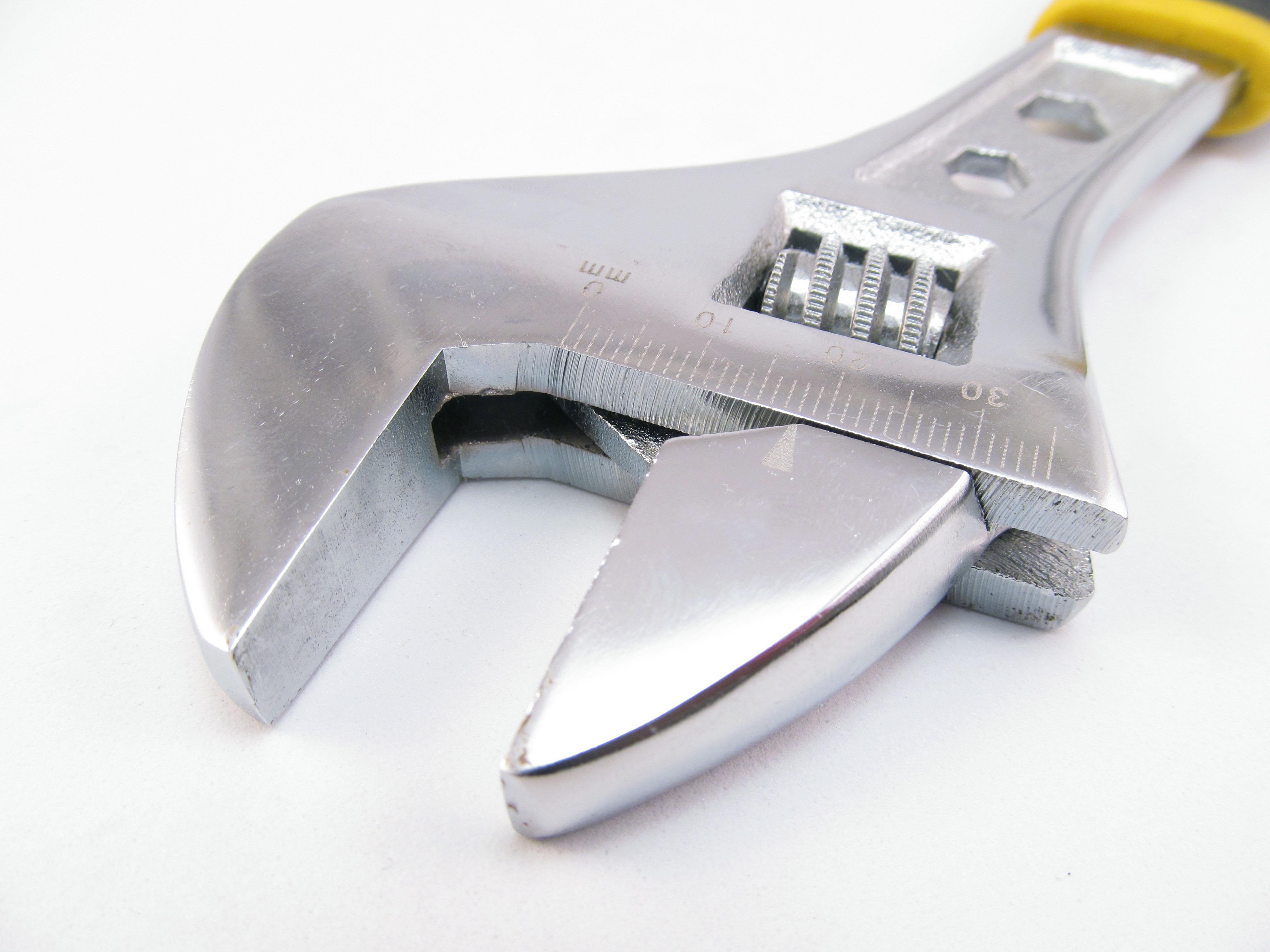LCS Heating and Cooling, LLC is currently accepting applications for the position of: Experienced Service Technician. Candidates must have a minimum of 5 years experience troubleshooting, repairing and maintaining HVAC equipment. Candidates must also live in Indianapolis or the immediate surrounding areas.
Job Responsibilities/Skills include but are not limited to:
- Independently follow daily schedule of calls using company software
- Perform annual maintenance tune-ups on residential and light commercial HVAC equipment. Examples include furnaces, air handlers, heat pumps, air conditioners, RTU's, mini-splits and humidifiers.
- Properly diagnose and repair residential and light commercial HVAC equipment (as stated above)
- Accurately complete customer invoices
- Accurately complete daily follow-ups with the office
- Rotate in On-Call Schedule
Other Requirements:
- Able to independently manage time
- Reliable and prompt
- Candidates must have own tools
- Professional, courteous and pleasant with customers and co-workers
- Team Player!
- Must have current driver’s license
Employee Benefits
- Paid Holidays
- Paid Vacation
- Take Home Vehicle
- Service Phone & Tablet
- Health Insurance
- Retirement
- Tool Account
- Bonus Incentives
Please contact us through Facebook for more information or to apply!
October 20, 2016
We all want our homes to be comfortable year-round. In the summer, we want to stay cool. During winter, we seek heat. For some homeowners, a heat pump can give them the best of both worlds!
These types of units are often super energy-efficient because they use heat that’s already present. By working with both indoor and outdoor air they can balance—or rather, counterbalance—whatever temperature you want inside. A heat pump can be a great asset. But when it’s not working properly, no one’s happy.
How Heat Pumps Work
If you want to understand heat pumps, it’s good to know that they aren’t too different than an air conditioner or refrigerator. Think about it this way: The coils on the back of the fridge always feel a little hot because the refrigerator works to pull warm air out. That’s why everything in the box stays cool. The same goes for air conditioning units. They’re made to extract heat from the air, and then sort of “exhale” it outside.
They have similar parts and similar purposes to air source heat pumps, but the heat pump has one unique advantage. Both refrigerators and A/C units work to keep places cool. What’s neat about heat pumps is that they work to both cool and heat a home. Here’s the shortlist of what they’re made of:
- Compressor
- Liquid Refrigerant
- Fans/Fins
- 2 Sets of Coils—one for indoors, the other for outside
- Reversing Valve (this is what makes the heat pump different)
Their overall goal of a heat pump is to move heat from one area to another. The compressor works to circulate refrigerant between the two coil sets. And that refrigerant either absorbs or releases heat—depending on the coil set—to get your indoor temperature just right. The fans help move the air around so when you’re ready to switch seasons, your cooling unit can become a heating unit.
Switching the thermostat from heat to cool, or vice versa, will cause the reversing value to switch the direction flow of refrigerant. At that point, the hot air will move in the opposite direction. Rather than “exhaling” the air outside, as it does in the summer, it “exhales” the air inside, producing efficient and economical heat.
Since they do double-duty, heat pump systems can run in any season. They push hot air outdoors in warmer months, and then pull warm air indoors when it’s cold. It’s all with a flip of the switch. Pretty cool, right?
Pros and Cons
Heat pumps have a big appeal for cutting energy costs because they don’t have to exert as much energy creating the heat. They simply use the heat that’s already present and move it to where you need it. Some people don’t realize that there’s still some amount of heat in the air even in cold weather. The little heat pump can still do its thing in winter because it draws in all the heat it can find outdoors and sends it inside.
So as long as outdoor temperatures aren’t super-low, the heat pump can easily be the only heating source for a home. For moderate climate areas, these units can save big bucks on energy costs. It’s when the thermometer drops that it might need backup. As a general rule, this tends to happen when it falls to 30 degrees or below outside.
Because a heat pump isn’t the most effective heating source in below-freezing temps, it might need to be partnered with another supplemental heat source, like a furnace or an air handler, during extreme winter weather. If you’re unsure about your area’s limits, it’s a good idea to consult with a local professional. The right heating and cooling setup can keep your home comfortable and energy-efficient year-round.
Heat Pump Maintenance
Like other HVAC units, a heat pump will last longer with annual maintenance. In addition to annual maintenance, A lot of heat pump users also extend the lifespan of their unit (10-12 years is average) by changing the filter on a regular basis, or about once a month for consistent use. Other than that, just keep the fans and coils clear of debris and you should be set!
If other problems arise, you might need to call on a professional. They can help you diagnose any heat pump repairs by doing all of the following:
- Check indoor coils, ducts, or filters for obstructions
- Seal leaking ducts and ensure adequate airflow
- Confirm proper refrigerant charge (and no leaks)
- Inspect electric terminals, and clean or tighten connections
- Lubricate interior motors, and check belts for tightness and wear
- Test reverse valve and thermostat operations
A heat pump can help keep energy costs low throughout the year—but only as low as it’s properly maintained. A neglected heat pump can end up wasting as much as 25%. So as long as you have a heat pump, you’ll want to keep it in good working order to get those energy savings.
Whether you want to be warmed up or cooled off, a heat pump is a great solution for home comfort. If it’s not doing its job, call in a good heat pump company. A few repairs might be able to put it back on the right track.
September 29, 2016
Every home is going to encounter problems with dust—that’s just how life goes. Dust is all around us, so it’s only natural for it to collect on the shelves. There are some practical ways to reduce and remove dust week-to-week (more chores, anyone?), but you might consider a more permanent solution if you really want to keep the dust bunnies from creeping around. An effective home upgrade can help you cut back on dusting and give you the allergen-free air your home’s been missing out on.
Where Dust Comes From
Dust tends to fall into two categories: indoor dust and outdoor dust. The outdoor kind is easy enough to understand. It’s made of dry soil, bits of pollen floating in the air, and other tiny particles that sneak inside when we open and close the doors to our homes. An estimated two-thirds of dust originates from outdoor sources.
The components of indoor dust are a little more complicated. Little insect parts, pet dander, and our own skin flakes can become organic dust matter. Other ingredients include tiny pieces of fabric fibers. Carpeting and clothing decay whenever we use them, so they constantly add more dust material to the pile. That microscopic fluff then mixes with other outdoor dust particles that have snuck indoors to make our homes dusty and contaminate the air we breathe.
Dust and Our Health
House dust is well known for triggering asthma symptoms and it’s a primary source of other allergic reactions too. (Little wonder that indoor air pollution is one of the top 5 environmental health risks, right?) Sneezing, nasal congestion, runny noses, and itchy or red eyes are all common dust allergy symptoms. Even weekly vacuuming or changing your pillow case may not be enough to get relief.
Aside from being unsightly and allergenic, your home’s dust may also be carrying some nasty toxins. A lot of our modern products contain chemical flame retardants, or PBDEs. As furniture fabrics and other materials wear down, they essentially release those chemicals into our home. The Environmental Working Group suggests inspecting home goods that contain foam for any rips or any sign of breaking down to reduce the chance of toxic exposure. Products made between 1970 and 2005 are more likely to have PBDEs, and should probably be covered up or replaced.
Dust Allergy Management
While there’s no real way to completely rid a space of dust, there are some general, best practice tips for lowering the amount of dust in your home. The short-term solutions to reduce dust allergens often relate to household chores, like changing and washing bed linens weekly in hot water. Some homeowners may even decide to make the switch to hardwood floors to improve their chances of stopping indoor dust from carpet fibers. These are helpful tricks for dust mites, but we like to opt for a 24/7 solution when it comes to managing the dust and other allergens floating in our air.
When you’re ready to get serious about removing dust from your home, an indoor air cleaner is definitely the way to go. These purification units can tackle the three different types of air pollution: airborne particles, like dust; germs and bacteria; and chemical vapors, or other strong odors. Filtration options are available as portable units (if you just want one for a single room) as well as whole-house systems.
A lot of families go with a whole-house system because it makes sure your air is clean before it starts circulating throughout your home. They essentially work to remove everything you don’t want to breathe. Once a unit is hooked up, you can cut out about 90% of all airborne mold and bacteria indoors. That leads to safer, cleaner air for allergen-prone individuals too. Pet dander, pollen, dirt and dust mites have a whopping 95% reduction rate with whole-house filter. These systems are super-effective!
If you’re concerned about other indoor air issues in your home, you can always check out this neat solutions guide from Lennox. Just click on the options that match what’s going on in your home to learn more. When you’ve got an air cleaner that’s right for your home, dirty air goes in and only fresh air comes out. There’s no way to completely stop dust from ever collecting, but a good air unit can definitely help you cut back on dusting so much. They’re a great solution for clean home air and easy, allergen-free breathing.
August 23, 2016
LCS Heating and Cooling, LLC is currently accepting resumes for the position of Customer Service Professional in our office. The HVAC industry can be a fast paced environment so we are looking for individuals who have a high level of organizational skills, enjoy talking to customers and love being part of a team. Prior experience in the HVAC industry is not a requirement. Please apply if you feel you'd be a great fit based on the descriptions listed below:
Job Responsibilities include, but are not limited to:
- Answering phones
- Answering customer questions
- Scheduling a variety of types of appointments
- Working in a software program
- Communicating with customers and vendors by phone and email
- Follow-up on customer proposals
- Managing spreadsheets
- Attending and participating in team meetings
- Managing installs, permits, rebate paperwork
Other Preferred Skills
- Strong phone skills
- Able to effectively manage email
- Strong organizational skills
- Excellent note-taking and follow-up skills
- Proficient in Microsoft Office (Word & Excel)
Other Requirements include, but are not limited to:
- Strong attendance record
- Reliability & Timeliness
- Respect toward co-workers and customers
- Team player
- Clean driving record
- Clean drug test
- Clean background check
LCS Benefits
- Hourly wage based on experience
- Direct Deposit
- Paid Holidays
- Paid Vacation
- Health insurance
- Retirement
Please submit your resume today to: renee@LCSheatingandcooling.com
August 11, 2016
Summer here in Indy means heat, humidity, and some good ol’ fashioned sunshine. While we’re quite fond of a strong AC unit, there are plenty of other ways to beat the summer heat around Indianapolis.
Before you decide to stay indoors and dial down the thermostat, check out some of these favorite local venues. Our picks for 2016 have something for everyone. Whether you want to explore the great outdoors, find a great shopping deal, or sip on a great local brew, we’ve got the summer itinerary you need to keep cool around town.
Best Outdoor Activities:
Sahm Park & Aquatic Center in Castleton
Probably the easiest way to lower your core body temp is to take a nice dip in the pool. We love Sahm’s Park because it’s convenient to get to and has plenty of space for relaxing. Open swimming, water slides, and other water spray features can help you stay chill on the sunniest of days.
Rusted Moon Outfitters in Broad Ripple
If you want a quieter scene and want to soak up some nature, be sure to check out Rusted Moon Outfitters this summer. They’re the local, one-stop shop for everything outdoors! You can even rent a paddleboard or kayak and then head over to the White River just down the road. If you start working up a sweat while paddling, it’s easy to cool off with a quick splash of water.
Fort Harrison State Park in Lawrence
Maybe shade is what you’re after? The trails at Ft. Ben can help you take cover. We like to take our pups hiking at this state park because their paths are fairly short and easy to follow. (Just don’t forget your doggie bag and a collapsible water bowl for them.)
Best Shopping:
BluePeppermint Boutique in Fishers
Some days are just too hot and stuffy to enjoy the outdoors. When that happens, consider getting out of the house for an afternoon shopping spree. That way, you still get a change of scenery, but you don’t have to sacrifice the AC. Located in a cute green house, BluePeppermint Boutique has a great collection of whimsy-chic clothing and accessories. We always find something fun!
Silver in the City on Mass Ave
There’s even more to love with local shopping at Silver in the City. This gift shop has some uniquely classy jewelry and loads of quirky items for anyone with a good sense of humor. Use your free time in July to get holiday shopping done early—who cares if it’s six months away? You might even find something special for yourself. (Also note: BRU Burger Bar is just around the corner. They've got a nice, big patio and unbelievable burgers!)
Dottie Couture Boutique at Keystone
There’s even more fashion trends at Dottie Couture Boutique to browse. They’re really good about keeping stocked with new styles and shipments, and the prices are great too. With other locations in Fishers and Greenwood, this is an excellent place to put on your list. A new dress for summer can help you cool off. It’s all about dressing for the season, right?
Best Food & Drink:
Sundae’s Homemade Ice Cream on 79th and Fall Creek Road
Sure, getting an ice cream cone is one of the most obvious ways to “beat the heat,” but if you haven’t had Sundae’s yet, you don’t know what you’re missing. Over 30 years of ice cream crafting make them one of Indy’s best-loved venues. (A couple of our favorite flavors are Peanut Butter Pie and Sundaes Trax. Also love the Reese's Mountain Sundae!)
Fire by the Monon in Broad Ripple
Fire by the Monon is just a half block off its namesake trail, so it’s easy to stop in and treat yourself to a drink or some dessert after a warm afternoon stroll. They have plenty of craft beers on tap, but we like to go because they have a great “Monon Mule.” So refreshing! (And even cooler—The owner's wife even makes some of their scrumptious sweet-tooth offerings herself.)
Blind Owl Brewery off 62nd and Binford Boulevard
On mild nights we definitely recommend hanging out at Blind Owl. It’s a family-friendly bar and restaurant with a great patio space for outdoor games. Nothing quite says Indiana summertime like a game of corn hole! There’s also bocce ball, so be sure to bring your game-face.
Alibi’s Bar & Grill at Shadeland Station
After a long day at work, we think of Alibi’s as our local “Cheers” bar. Great company and awesome food—just what you want on a hot day. Plus they’ve got the best cheesy bread and pizza around. Try their BBQ Chicken. They make it with smoked Gouda and the flavor is perfect for both winter and summer. Yum!
What do you think of our 2016 list? Did we include some of your own local Indy favorites? Check these places out and leave us a comment below. We’d love to hear from you!
July 13, 2016
It can be hard to figure out the best course of action when your HVAC unit starts acting up because there are so many factors to consider. The size, age, financing options, and repair costs on an HVAC system all contribute to making the “right” decision on whether to repair or replace.
As a general rule, it’s usually a good idea to replace a product when its repairs are climbing over 50% of a new item cost, but a real cost comparison is often more involved. Sure, a repair bill of $300 isn’t nice to look at, but it still looks cheaper than an entire system upgrade. On the other hand, the lower cost isn’t always the smartest move. Say your equipment is 15 years old and you’ve already made a $500 repair earlier in the year…well, then the math may not be so easy. Trying to predict what else might go wrong with your unit in a couple years (or even the next 6 months) is a tricky gamble. That’s why we recommend looking at some concrete facts.
Reasons to Repair
1. Is the broken part under warranty?
When a part is covered under warranty, it’s usually best to get the repair and move on. You might still want to consider the cost of the labor (if there is any), but warranties usually make the repair vs. replace conundrum pretty clear-cut. If nothing else is wrong, why pay for a new air conditioner or furnace?
2. Is your system less than 10 years old?
Your HVAC equipment might have different life expectancies, but heat pumps, air conditioners and furnaces are said to last 12 to 15 years on average. If your unit is 10 years old or less, your chances of having frequent problems are a lot lower, so making the quick repair tends to be more appealing than full replacement.
3. Are you planning to move in the next year or two?
When your odds of moving are high, confirm that your unit isn’t at the end of its projected lifespan before opting for the repair. Replacing or upgrading your HVAC unit could help your house stand out to potential buyers; but if the unit is in relatively good condition or still under warranty, you might be better off sticking with the easy fix.
4. Is the unit right for your home?
This question can be a little trickier to answer on your own, but a good HVAC tech will tell it to you straight. Some furnaces and air conditioners are actually too big for their home they are installed in and end up wasting energy and money. Proper installation goes a long way with your unit’s efficiency too, so if you trust that your unit is in the right location, sized right, and has the right efficiency rating, you’ll likely feel good about getting the repairs.
Reasons to Replace
1. Has your unit needed costly repairs in the last two years?
Older HVAC systems are more likely to have frequent repair issues. When your unit has passed the warranty coverage date and repair costs only seem to escalate, you’re probably toeing the line for replacement.
2. Has the system been under-performing in other ways?
Maybe you’re constantly adjusting the thermostat to get comfortable, or the air indoors feels stuffy, damp, or just “off.” Is your furnace or air conditioner starting to sound louder than ever before? Some of these annoyances could be fixed with quick repairs, but if not—it might be time for new equipment.
3. How much could you save with a more efficient unit?
Check out the energy savings calculator to estimate the money you can pocket each month from a system upgrade. The latest technology can cut energy costs by as much as 40% and still run quieter than models made 10 years ago. If you’ve made other efficiency updates to your home—like new windows or insulation—an HVAC system with a good ENERGY STAR rating might be what you’re missing to really kick those saving into high gear.
4. Are good financing options available?
If your HVAC company can help you identify cost-effective financing strategies, a system replacement might be worth your while. When considering replacement options, knowing about seasonal specials, manufacturer rebates, or 0% financing opportunities with a local bank can make you feel a lot better about going with a new air conditioner or furnace.
Now that you’ve weighed the possibilities, tally up your Yes and No answers from each category. Answering “Yes” to 2 or more questions is a good indication that you’ll want to consider that side’s solution. Consult with your local HVAC tech if you’re still on the fence. They can help walk you through the different scenarios for your current system and home setup so that whether you choose to repair or replace, you can feel confident that it’s the right decision for you and your home!
June 23, 2016
Not sure who to call when the AC breaks down? You’re not alone! Deciding which HVAC company to go with can be a confusing process, but things get a lot simpler when you work in stages. If your AC isn’t working quite right, or you’re thinking about a system upgrade, take a look at these checklist items first. A little research can help you find an HVAC company you can trust.
Part I: Examining Your AC Unit
Whenever you can, try to check on a few things with your unit before making a service call. Sometimes a quick fix is all you need to solve the problem.
- Check the thermostat. This is often the first place we go, but double-check to make sure it’s set correctly. If the thermostat screen is blank, that might mean you need to replace the batteries (if it takes any).
- Replace your air filter. Hands down, the best way to keep your HVAC unit in good order is to regularly change your filter. Old filters restrict air flow and can even stop your system from working if they’re dirty enough.
- Clear the area around your AC unit. Landscaping debris might be blocking the air flow around your system. Make sure the unit can run properly and efficiently by cleaning up, and then confirm that the breakers are turned on.
If nothing has changed after taking those steps, it might be time to call in a professional. Try to make a couple notes on your unit’s symptoms so you have all the information you need to schedule the visit. Strange noises with your HVAC unit, odd smells, and any new cold or hot zones in your home are all indicators that your system needs servicing.
Part II: Finding a Reputable HVAC Company
So you’re ready to bring in the professionals, but not sure who to call? You’ll be more likely to find a great HVAC company when you stick to a few guidelines.
- Ask your contacts about recent service. Try posting a status update on social media to say you need service. Your friends and family will be happy to tell you about their last HVAC experience—whether good or bad, you should easily be able to get a few first-hand accounts about local companies.
- Read online HVAC reviews. More and more people are using Yelp to review HVAC companies. If you have a company you’re thinking of calling, check out a few of their reports first. It’s a good sign if customers are praising their HVAC repairs, not just the system replacements. That usually means the company is honest (because they’re not trying to up-sell) and works with your best interests in mind.
- Confirm that the company is bonded, insured, and licensed. The City of Indianapolis requires a permit for replacing an air conditioner. Visit your HVAC company’s website to make sure they are licensed in your area. Working with a company that’s bonded and insured will also protect you from any complications that might happen during a service call.
When it comes to HVAC repairs and new installations, a company’s experience matters a lot more than their location. Your best option may not always be the company that’s closest to you, so feel free to check credentials in a wider radius.
Part III: Reviewing Your AC Service Call
Once you’ve selected a company to try out, pay close attention to how they handle your service during their visit. Comparing etiquette is often just as important as comparing price!
- Was the technician professional? Using shoe coverings in your home and cleaning up around the worksite are signs of good employee training.
- Is the company’s pricing straight-forward? Having a flat-rate fee for service calls is standard practice, but it’s an added bonus if your HVAC company says they’ll waive the service fee if your system needs more expensive repairs.
- Did your technician explain the next steps? A good tech will tell you exactly what they checked and be able to confidently answer all of your questions. If they said a certain part on your unit needs replacing, they should also tell you whether it’s covered under warranty.
Last but not least, be sure to trust your instincts when hiring a new home services company. Doing your research is definitely a plus, but sometimes you’ll just know a good thing when you see it. If you’ve already vetted your new HVAC company, the only other thing you can do is to go with your gut!
May 31, 2016
LCS Heating & Cooling has such loyal customers and we’re honored to serve you! Year after year, you trust us with one of the most important functions of your home—its comfort level. Whether your house is feeling too hot or too cold, smelling too musty, or creating too much static or dust, the LCS team is here to help you out. Your home should be able to give you a comfortable, indoor atmosphere for every season. It’s our job to make sure your HVAC systems are always on their A-game.
How do we do it? Well, we listen to your feedback! We make customer service our top priority, hire and train quality personnel, and take our business very seriously. It’s because of you and your referrals that LCS Heating & Cooling continues to grow. Take a look behind-the-scenes, and you’ll see we’re always working hard to earn more of your all-star reviews. Thanks for growing with us!
Easy HVAC Scheduling—even with HVAC Emergencies
What happens if your air conditioner or furnace starts acting up in the middle of the night? Or on a holiday? No one wants to wait for service! You want it fixed ASAP, and the LCS team totally understands. We’ve got a great scheduling system in place to help get these “HVAC nightmares” under control.
Our team is available 24/7 to take your calls. So if you want service, you’ll get it! Our customers always have someone to talk to when issues pop up—whether it’s with one of our office staff or one of the people with our professional answering service. If you need immediate service after-hours, the LCS technician on call will handle it right away. For non-emergency calls received after hours, the folks answering will take a message. Our office staff will then follow up with you the next business morning. Pretty easy, right?
Excellent HVAC Personnel and Quality Training
We take great efforts to seek out new, quality team members and only hire the best. Our customers deserve to work with awesome LCS employees, which is why we run every new hire through a background check and driver screening. Plus, each of our new hires meets with the owners, Travis and Renee, after 30 days and again at 90 days to ensure that their training is on track.
You are guaranteed to get the same high level of service with every LCS team member because all of our HVAC personnel are trained the same way. That same code of ethics that helped start this company over 10 years ago has been passed down to each LCS employee. Travis’s honesty and thoroughness with customers and Renee’s responsiveness are embodied by everyone on the team. We train our staff to uphold our high “LCS-level” of customer service, so you can trust that any new faces with LCS will be on par or even better than your last tech. We’re extremely proud of our team’s expertise and professionalism—we know you’ll agree!
Energy Savings Plans for HVAC Maintenance Customers
Last but not least, we’re pleased to continue providing Residential Energy Savings Plans (ESP) for ongoing customers. These offers include one annual heating and one annual cooling tune-up, along with options for filter changes, humidifier service, a tankless water heater flush, and UV bulbs.
Preventative maintenance helps customers get the maximum efficiency on their units at a minimum cost year-round. With service call discounts, 15% off repairs, and 15% off indoor air quality products, this package is a great way to keep your HVAC unit in tip-top shape through every season. And our ESP customers never get charged for any overtime work. An LCS tech will be on the job—at no extra charge—day or night for any of your emergency HVAC repairs.
The LCS future is looking extra-bright thanks to our loyal customers and new team members. We’ll only keep getting better as we continue to grow. Since 2005, our company’s service has collected dozens and dozens of rave reviews from customers. We appreciate your feedback and couldn’t have come this far without you! Thank you so much for being an LCS fan and for making us your favorite HVAC company in the Indianapolis area!
Got a review to share? We’d love to hear it! LCS Heating & Cooling is on Google+ and Yelp. Check us out!
April 28, 2016
LCS Heating and Cooling, LLC is currently accepting resumes for the positions of Lead Installer and Maintenance Technician. LCS is looking for individuals who take pride in their work, enjoy working on a team and have a desire to further their career in HVAC! Please apply if you feel you'd be a great fit based on the descriptions listed below:
Lead Installer
Job responsibilities include, but are not limited to:
- Installing furnaces, air conditioners and heat pumps in residential settings
- Installing rooftop units in light commercial settings
- Installing humidifiers, zone systems, filtration systems
- Making daily material lists for jobs
- Monitoring van inventory
- Completing invoices
- Communicating with customers
- Teaching new skills to helpers
Other requirements include, but are not limited to:
- Strong attendance record
- Reliability & Timeliness
- Respect toward co-workers and customers
- Team player
- Clean driving record
- Clean drug test
- Clean background check
Maintenance Technician
Job responsibilities include, but are not limited to:
- Perform annual maintenance service on furnaces, air conditioners and heat pumps in residential settings
- Perform annual maintenance service on rooftop units in commercial settings
- Safely climb an extension ladder
- Change filters, humidifier pads, UV bulbs and thermostats
- Ability to follow own calendar and schedule of calls
- Ability to monitor time and arrive at first call of the day on time
- Complete invoices
- Communicate with customers and office
- Motivation to learn new service skills
Other requirements include, but are not limited to:
- Strong attendance record
- Reliability & Timeliness
- Respect toward co-workers and customers
- Team player
- Clean driving record
- Clean drug test
- Clean background check
LCS Benefits
- Hourly wage based on experience
- Paid Holidays
- Paid Vacation
- Health insurance
- Tool account
- Retirement
- Opportunity for take-home van is available if able and willing to rotate in the on-call schedule
Please submit your resume today to: renee@LCSheatingandcooling.com
March 24, 2016
People will sometimes associate their indoor air quality with things like scented candles, carpet refreshers, and fragrance plug-ins. We all want to live in homes that don’t “smell bad,” but those scented store products won’t actually take care of any air problems. According to the EPA, the level of air pollutants we’re exposed to indoors is often five times higher than any outdoor pollutant levels, so it’s especially important that our indoor air is properly filtered. Forget the fancy perfumes—if you want a clean and fresh-smelling home, the key is that it shouldn’t smell like anything!
When you’re looking to get your house smelling better, your filtration system is a good first line of defense. It catches dust and other particles in the air to keep your home’s ventilation system from blowing extra contaminants throughout. Replacing your filters regularly will help boost your home’s air quality, but if you really want to neutralize odors, you’ll need more than a good air filter.
In order to tackle the allergens and mold in their indoor air, a lot of homeowners end up adding a UV light to their whole-home filtration system. Think of these lights as special, powerful air cleaners. The UV unit tackles air quality problems that are too complicated for your filter—things like odors and pathogens. We like installing the APCO UV light because it doesn’t create any ozone indoors as it attacks the mold, airborne bacteria and viruses, and odors in your air. The light filters your air by transforming the contaminants into CO2 and water vapor. And with the air contaminants eliminated, you get an unscented home!
The “unscented” part of home air quality is key. A filter can help with dust, but addressing any lingering smells requires a more advanced system, like a UV light. We don’t want the cat’s litter box, stale smoke, pungent cleaning solutions, that fresh coat of paint, or the smell of last night’s dinner wafting into our bedrooms (no matter how delicious it was). Air solutions that truly neutralize odors won’t just mask other smells, they’ll eliminate them. And they won’t leave any scent behind either. That’s the whole point of a UV filter—it takes care of the air pollutants that a filter can’t handle alone.
Independent studies from an allergy testing lab have proven that our go-to UV light removes microbes and VOCs and other air pollutants in your home, but the APCO manufacturer has other perks too. We already mentioned it’s ozone-free. Another bonus is that the APCO’s carbon cells don’t ever get dirty in the air purification process. Unlike other electronic air filters, this one doesn’t have parts that need to be cleaned or replaced every month or two. There’s even a lifetime warranty on the unit itself, plus it has a 2-year bulb rather than just a 1-year bulb like
most other UV units.
By effectively removing airborne pathogens like mold, bacteria, viruses, and other smelly odors, this special kind of filtration helps you get fresh air circulating in your home every day. UV systems are easy to uninstall too—so if you ever end up moving, you can take your current system with you and keep that good air flowing at your new address!
A great UV light keeps your home smelling nice and neutral. If you have any questions about the right type of filtration system for you home, please give us a call or leave us a message below. For the best air quality, unscented is definitely the way to go!
March 23, 2016








